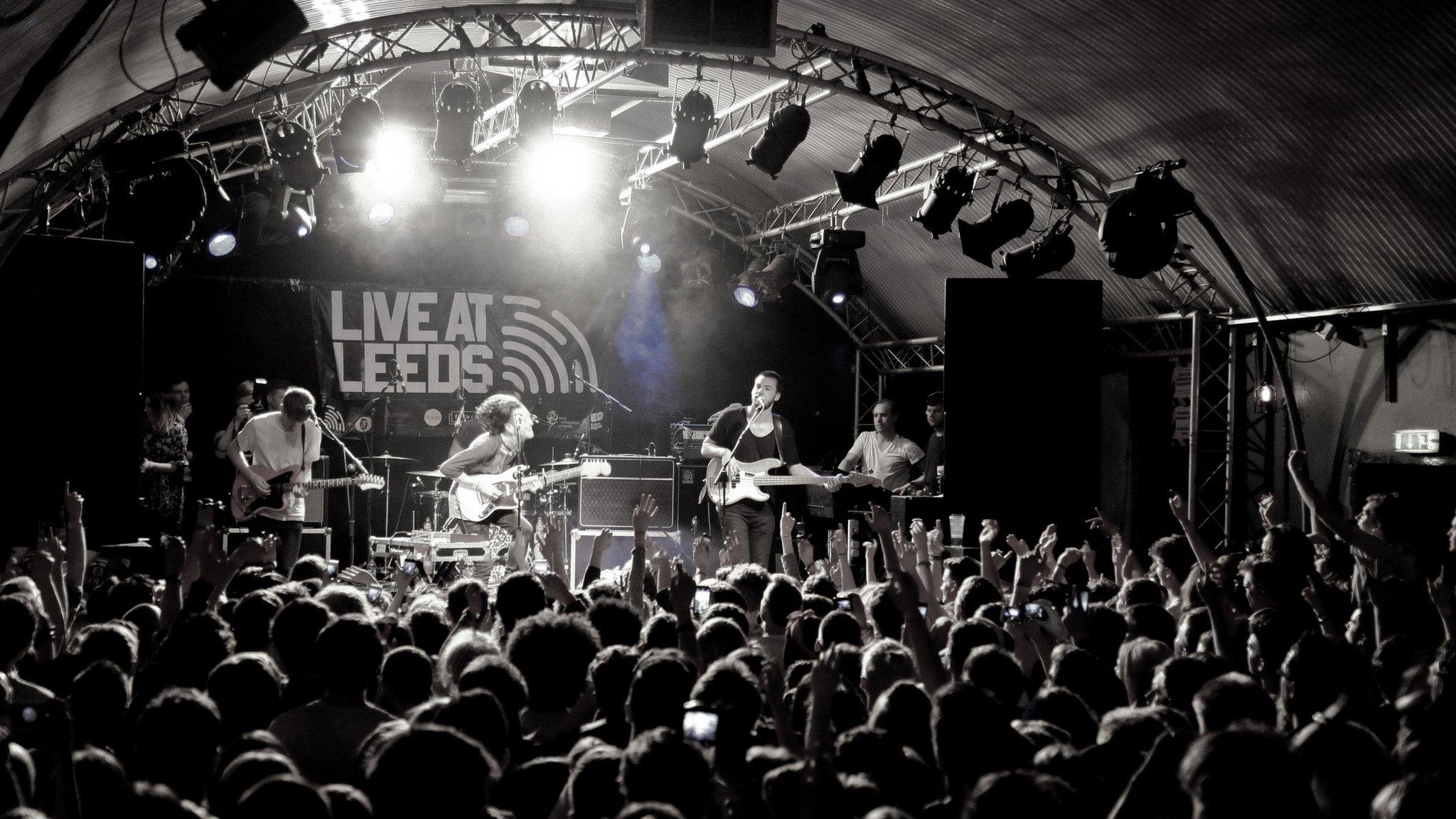Culture minister: Music venues 'should get art funding'
- Published
Colin Paterson reports on the closure of small music venues around the country
Music venues "should be not be shy" of applying for arts funding, culture minister Ed Vaizey has said.
"A vibrant music venue which is breaking new acts has just as much right to be considered a cultural venue as a local or regional theatre," said the MP at a conference on live music.
Called Music Venue Day, it highlighted how "grassroots" venues are increasingly under threat.
In London alone, 35% of small and medium venues have closed since 2007.
The stark survey figures, compiled for the Greater London Authority (GLA), have prompted calls for a "Night mayor" for London, who would look after the night-time economy.
Mr Vaizey applauded the idea - if not the job title.
"I like the idea of running to be a nightmare in future elections," he joked.
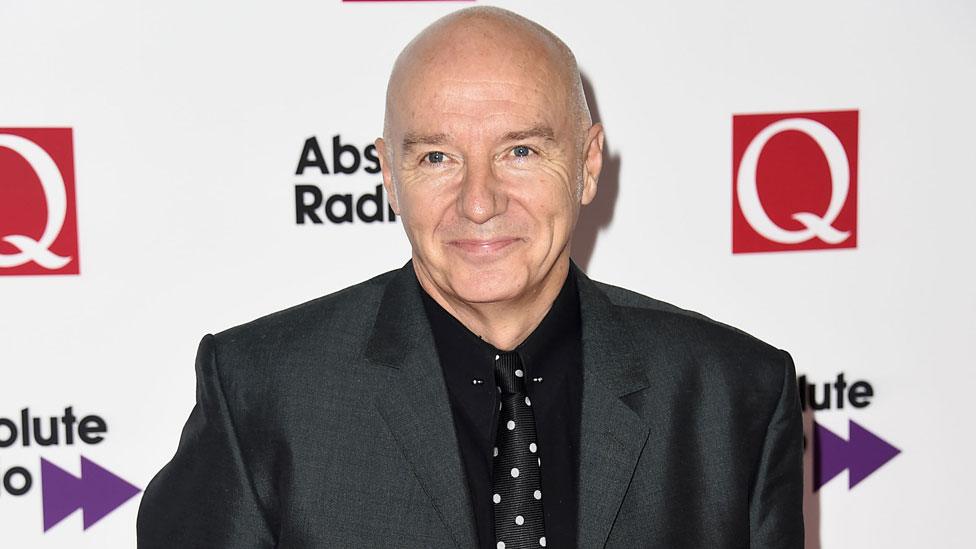
Ure: "The only place you can go out and be bad is small venues"
Live music venues have been closing across the UK in recent years, thanks to rising rents, noise complaints, licensing restrictions and competition for gig-goers' money.
Ultravox star Midge Ure said at Monday's Q Awards that small venues are "the lifeblood of our industry".
"I know there are degrees you can do in pop music, but it's just nonsense really," he added.
"The only way you learn how this stuff works is by going out there and being bad. And the only place you can go out and be bad is small venues.
"So if you take that away, the only other route there is, is this ridiculous route we seem to have contrived for ourselves where, instead of looking for the next John Lennon or the next Kate Bush, we're looking for the next karaoke singer. It's ludicrous."
Noel Gallagher, who won best album at the awards, was also keen to stress the need for small venues.
"You play the small places on the way up. But it seems to be a problem nowadays that there's only really tiny pubs or huge arenas to play."
'White noise'
Mr Vaizey suggested venues could apply to arts bodies in England, Scotland, Wales and Northern Ireland to help fund their programmes.
Joyce Wilson of Arts Council England agreed, saying that only a "relatively small" number of venues - including Band on the Wall in Manchester, Cecil Sharp House in London and The Stables in Milton Keynes - currently attracted funding.
"Not many of you do apply to the arts council," she told delegates. "It's really hard to support you if you don't come and talk to us."
But venue owners were sceptical.
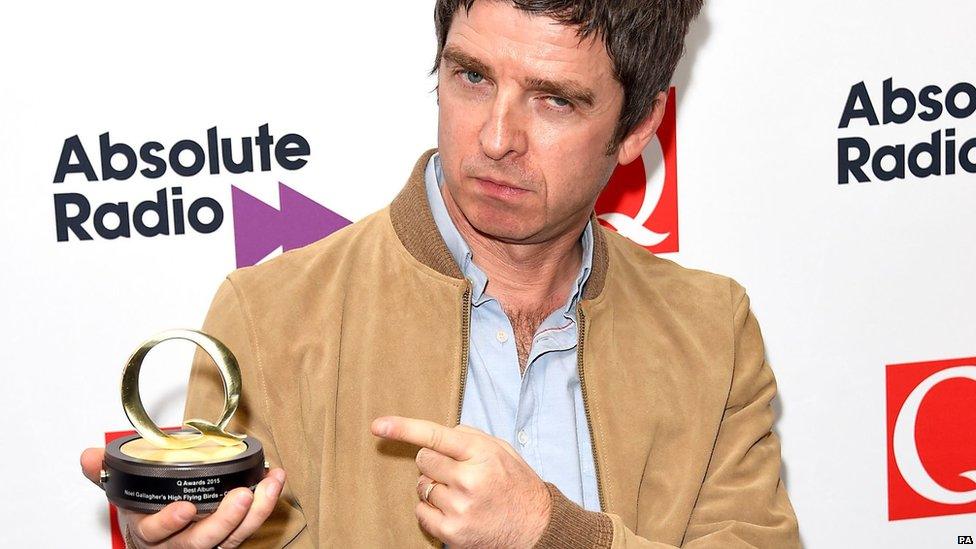
Noel Gallagher bemoaned the lack of small venues
"What you're proposing isn't actually any help to us," said Mark Davyd of the Music Venues Trust. "We don't have time to fill in hours and hours of very rigorous paperwork. And if I did it, you wouldn't understand anyway.
"I want to put on a guy who's playing white noise through a trumpet for no apparent reason, other than the fact that it might annoy someone and it's just brilliant. It doesn't fit in what you've got."
He added that many concert halls were run-down and unattractive.
"People are walking into these venues and they're thinking, 'wow, live music smells a bit funny.'
"We need money to be put into infrastructure."
Mr Vaizey said the Arts Council "could potentially fund some of the equipment for music venues" but stressed that the body was independent from the government.
Shadow culture minister Michael Dugher also highlighted the disparity in funding between the "high" and "low" arts.
"I do worry that there may be an element of snobbishness in how money is allocated," he told the BBC. "Opera does very well, ballet does well, jazz does very well - but rock and roll doesn't do so well.
"We have a real crisis in the system. We are haemorrhaging small music venues - not just in London, but across the whole of the country. We really need to wake up to that and do something about it."
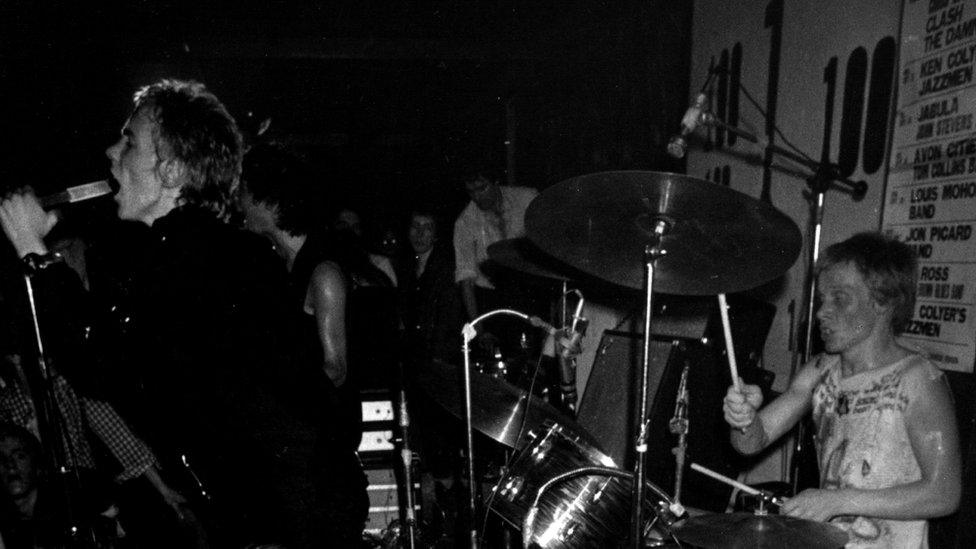
The Sex Pistols cut their teeth in small venues like London's 100 Club before hitting the big time
BBC 6 Music's Steve Lamacq, who claims to have seen more than 5,000 gigs in his career, also voiced concerns about the disappearance of live venues, noting that they had a social and cultural value beyond the music.
"We used to meet in record shops... and by chance you might meet someone there who you'd want to form a band with, or start a fanzine with," he said.
"With virtually no record shops now, venues are where that happens. People can congregate there and share ideas."
But one venue owner sounded a more positive note.
Dominique Fraser, of Guildford's The Boileroom, said her organisation was in the middle of a "real regeneration".
"We're very much taking on a lot of community aspects," she told the BBC. We have six studio spaces upstairs, which are used by everything from illustrators to jewellery designers. So we've diversified what we do - we don't just put on live music any more.
"But people will always go and see live music because there's nothing like being in a venue, being sweaty and seeing music for the first-time, up front and in your face.
"While bands continue to deliver on that - which they are - people will always want to come and see it."
- Published11 April 2013
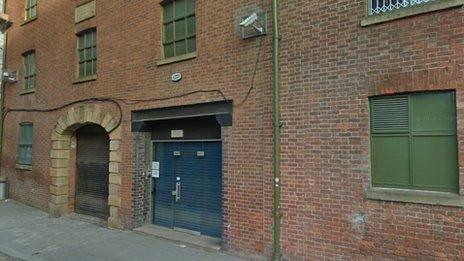
- Published10 September 2014
